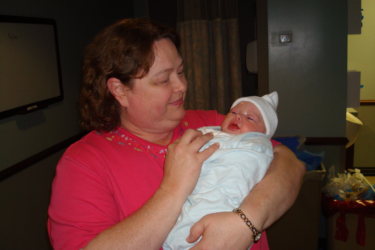
Parenting a Child with Exceptional Needs?
“Fine” is a relative term. Any parent of a child who has special needs will tell you that. “Fine” is a day that is fairly calm, without outbursts, temper tantrums, and sensory drama. “Fine” is when a parent’s well of patience and emotion are not depleted within hours of waking, a day
when she is not on the verge of tears, has no more tears to cry, or tiptoes on the edge of losing it. I know this because I am the parent of a child with special needs.
I have been judged and questioned about my parenting decisions, by those who know or do not know my child or me. Their responses ranged from non-verbals including the scoff or the stare of disbelief to verbal responses like, “Is she okay?” I usually replied with either
embarrassment, anger, a need to protect my child, or a desire to draw into myself and disappear, “She’s fine.”
She was fine, but only I knew that. I spent innumerable dedicated hours, days, weeks, and years with my daughter and her occupational therapist (OT), Carol, while we unlocked the spectrum disorder that cocooned my girl and shut her away from herself, her family, the rest of the world, and me.
Carol helped my daughter reintegrate her sensory system over a period of six years, but one day, Carol sat me down and gave me a stern talking-to. She pointed out that as my daughter’s system became healthier, she became manipulative. And although that was a good sign, a milestone, I needed to stop enabling my daughter’s behavior. Carol also told me
that I had special needs, too.
“You need to look out for and take care of yourself,” Carol explained. The veneer of my brave face cracked with that simple statement. Choking tears coursed down my cheeks and the old-as-time mama-guilt loosened its hold on me. In that moment, I realized my love for my daughter had pushed me to the background. I rarely thought of my needs or myself. I was emotionally spent.
What you can do for yourself. I knew I needed to bring myself and my needs to the foreground for once. I had to learn and accept that it didn’t make me selfish, but instead allowed me to stay mentally healthy not only for myself, but for my daughter as well. Here are a few tips on how to help yourself take care of your special needs.
Educate yourself about your child’s special needs. Knowledge provides understanding. I found that the more I learned about my child’s special needs, the more confident I felt about how to help her cope, handle situations, and advocate for her. I was a more effective caregiver.
Consider therapy for yourself. You need to be as healthy as you can for your child. You can feel a whole range of emotions–anger, fear, and uncertainty among them. Your emotions are normal.
Get support. Develop or join a network of parents who have children with special needs.
Or, ask your child’s OT or physician for ideas or contacts. Many parents of children with special needs share that they often feel isolated and this is a great way to build a network of people willing to help.
Ask for help. Tell your spouse/partner/significant other and friends how you feel. You are
the primary caregiver, and parenting a child with special needs is emotionally and physically taxing. Others probably don’t have any idea how you are feeling. Tell them how they can help
you, like watching your child so that you have time to replenish yourself or offering a listening ear.
Cry. Stress hormones, found in tears, negatively affect every system and organ in the human body. Crying provides health by eliminating harmful stress hormones. Haven’t you found that you feel relief after a good cry?
Give yourself personal time. Walk, write in a journal, or participate in an activity you enjoy. Every day.
Take care of you. Make sure you are eating food that is healthy, drinking plenty of water, exercising, and getting plenty of sleep. ■





